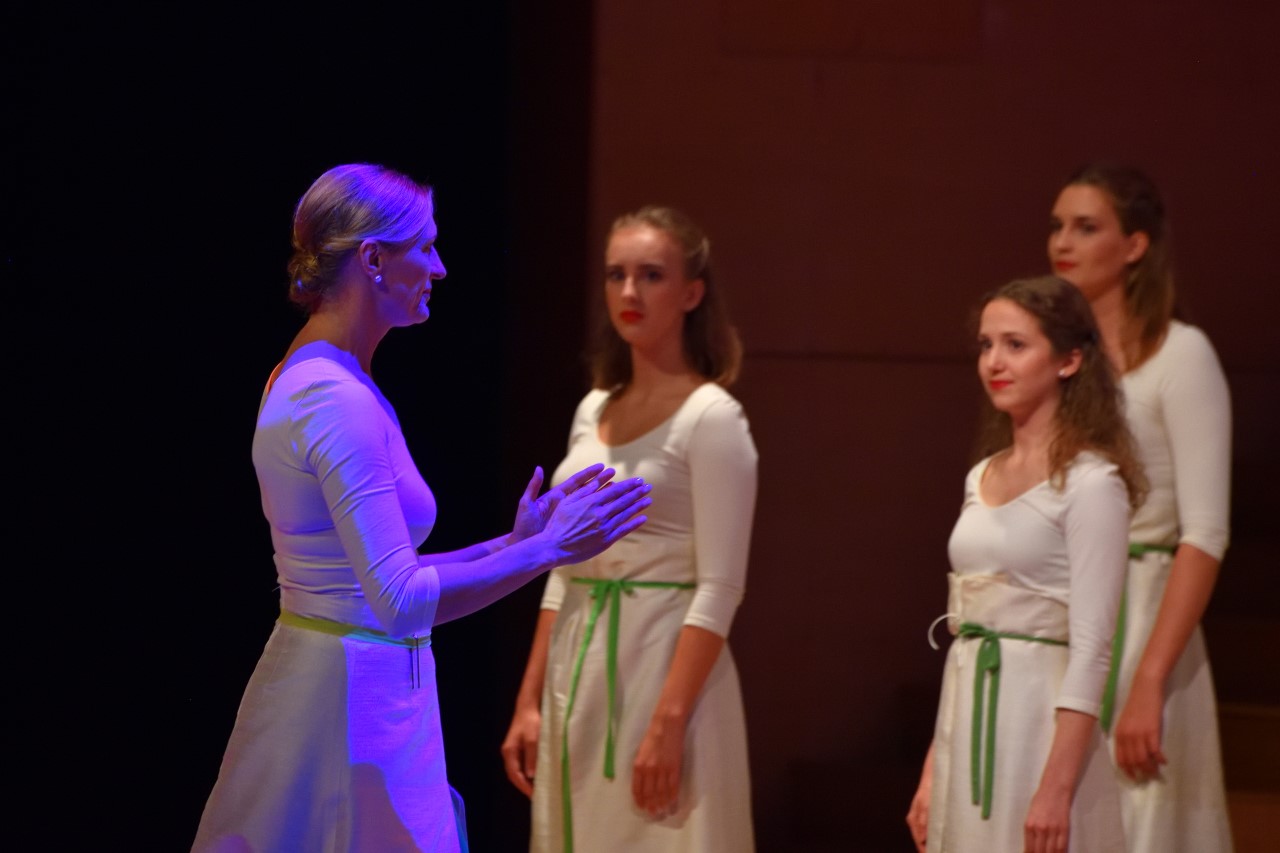
So much has been going on – on different stages and even more behind them – at The Europa Cantat Festival that it is not an easy task to recap the event. Nevertheless, one thing is clear. The protagonists are the singers and conductors. After this mostly pandemic academic year, they have shown us so much that as an average music lover I cannot but enjoy the abundance of messages conveyed to the audience in this fabulous week of choral music. The Europa Cantat Festival took place from 16th-25th July 2021, bringing together music-related enthusiasts and professionals from all over the world, among who also St. Stanislav Youth Mixed, St. Stanislav Girls’ Choir and Megaron Chamber Choir. The students and alumni from St. Stanislav’s Institution, more precisely from The Diocesan Classical Gymnasium, sing in these choirs. All three choirs are led by Helena Fojkar Zupančič and Damijan Močnik, whose personal charisma and leadership add so much to a young person formation in terms of personality and music making.
What are singers’ drives? Live singing, keeping together and top conductors
It is surprising what passion, determination and joy the singers demonstrated while taking part in different ateliers, workshops and especially on the stage during concerts. What or who can be held responsible for this, in particular after the morbid year of social distancing, uncertainties and anxieties? Well, to start with there was a factor of change in the air, the singers and the audience simply wanted to sing live and express themselves after such a long period of silence. Arts offers numberless ways of expression and choral music is definitely one of the most eloquent, combing the mind, body and soul. The focus, hard working attitude and artistic expression of the young singers were widely admired. Panda van Proosdij, Dutch prominent conductor, praised the sound of St. Stanislav Girls’ Choir, its colour and strength. “For the first time I have heard a spiritual interpreted by European singers that sounded authentic and not like some imitation.”, she said. She added that “the lemniscate walk into endlessness symbolises the incredible strength of the girls.”
Secondly, the singers loved being together. Already in ancient Greece Pherekydes of Patrae, known as the ‘Giver of Rhythm’, was described in a report from 709 BC as somebody leading a group of several hundred musicians by beating a golden staff “up and down in equal movements” so that the musicians began “at the same time” and “all might keep together”. So “the keeping together” was huge at the EC, too.
Last but not least, the singers were in the good hands of top conductors, who translated their visions into glorious sounds – and the young followed. For me this is a matter of trust. This is why the adults should never ever betray the trust the young have in us. What exactly does a single person on the podium (i.e. the conductor), making almost no noise at all, do? Conductors not only beat time and offer interpretation, but most importantly, they listen and lead. From what I have heard from the singers talking off the record on the EC, listening is the crucial one. Both the singer and conductor can together become something bigger, at the same time feeling fully realised as individuals. We have witnessed this phenomenon on both full evening concert given by both, St. Stanislav Girls’ Choir and Megaron Chamber Choir.
All the above are the points that make the student singers of St. Stanislav shine on the stage, grow into great young adults, thus contributing a priceless share for the embetterment of the society we live in. Heroes pugnates (Heroes, fight), if I use Galuss’ words that echoed at one of the EC concerts. For the young heroes, determined, yet emphatic, there will be a lot to struggle for in the future. However, boosted by their outstanding performance and mentors in the field of arts, sports or science, they will be unbeatable, irreplaceable and indispensable. Using the words of Panda van Proosdij we may say that “the young are the loving preachers of the future”. Or in Damijan Močnik’s words: “What would conductors do without their beloved singers?” /Lily Schweiger Kotar/